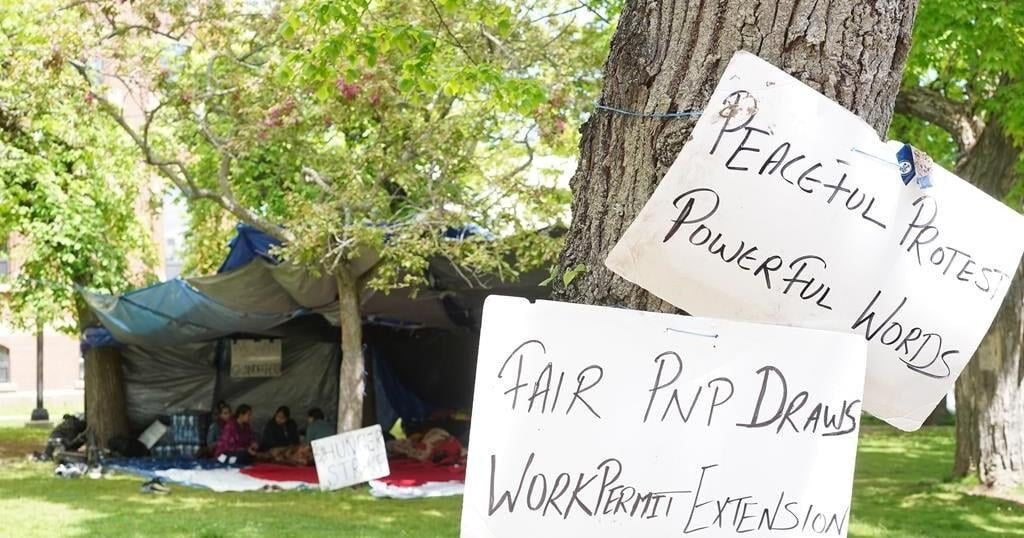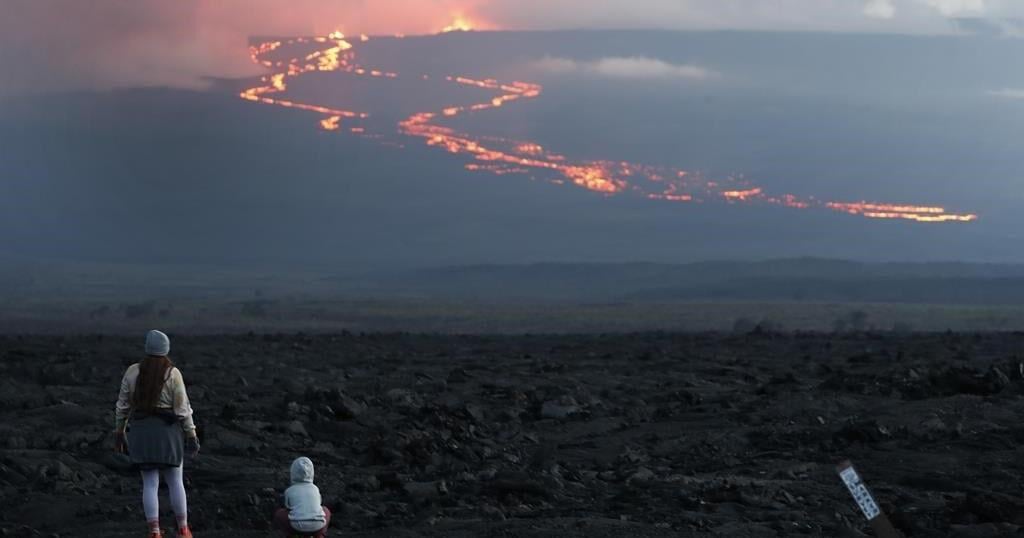CHARLOTTETOWN – For Rupinder Pal Singh, who has been a leading voice in protests against changes to Prince Edward Island’s immigration rules, going back to India is “not an option.”
He said Wednesday that at least 20 people from his group of protesting foreign workers have given up and returned to their home countries. But despite racial slurs and threats of violence he says he has received, Singh wants to remain in the province in hopes of bringing about change.
“My parents are panicking, and worrying about my safety,” he said in an interview Wednesday. “I’ll be trying to put more pressure on (the government) to … give us what we want.” His current work permit expires on July 14, but Singh said he hopes to apply for a visitor visa to stay in Canada.
Singh led a group of about 250 workers in hunger strikes this spring and met with Department of Workforce, Advanced Learning and Population officials to challenge the government’s decision to change immigration rules that were in place when they arrived on the Island.
The protesters are challenging the government’s decision in February to slow the Island’s population growth by reducing the number of immigrants who will be granted permanent residency, a change that has put a particularly tight limit on those who entered the province on permits to work in the sales and service industry.
Hillary Proctor, spokeswoman for Workforce, Advanced Learning and Population Minister Jenn Redmond, said Wednesday that nothing has changed since the minister told protesters in a June 18 letter that the province’s immigration reform would remain in place.
“Our government has not promised or guaranteed permanent residency to anyone,” the letter said. “Those who moved here from elsewhere in Canada after completing their studies, or living in other provinces, seeking permanent residency, came here voluntarily. Prince Edward Island has often been seen as an easy place to obtain permanent residency. This is a reputation that we are changing to ensure our province is not seen as a place to get expedited permanent residency for those seeking to immigrate.”
Singh argues the government should not have a problem accommodating about 250 people. Some of those who could have received permanent residency under the old rules were front-line workers at the height of the COVID-19 pandemic, he said.
Singh, who came to Canada in December 2019, studied business at St. Clair College in southwestern Ontario before taking up a job in Saskatchewan and eventually moving to Prince Edward Island in January last year. He said he has spent about $70,000 on his education and living expenses in Canada.
“Everyone knows the rules are changed,” he said. “We just want those people who already started (under the old rules) to be grandfathered.”
He spoke after a news conference organized by the Cooper Institute, an organization that advocates for democracy and inclusion. Participants said the workers have contributed greatly to Prince Edward Island and called on the government to ensure they can continue on the path to becoming permanent residents.
Another person affected by the change in rules in February, Mitesh Chandra, decided to go back to India in March after about three-and-a-half years in Canada.
He also studied business at St. Clair College and lived in different cities, including Vancouver and Montreal, before finding a banking job in Halifax in 2022. He hoped to apply for permanent residency in Nova Scotia but about a month before he was eligible to apply he said the rules changed there.
So, he moved to Prince Edward Island. But the rules for those who entered the province on permits to work in the sales and service industry changed again.
“I was fed up of all these things that the provincial government was doing,” he said. “I thought it was really unfair … I moved back to India, and I’m pretty happy.” Chandra said he spent about $90,000 as a student while in Canada.
He is looking to put his degree to use by starting a business, something he had planned to do in Prince Edward Island. He said he always intended to return to India, but obtaining Canadian permanent residency would have been a sign of success back home. “At least they would believe I could achieve something there,” he said.
This report by The Canadian Press was first published July 3, 2024.
— By Hina Alam in Fredericton

























